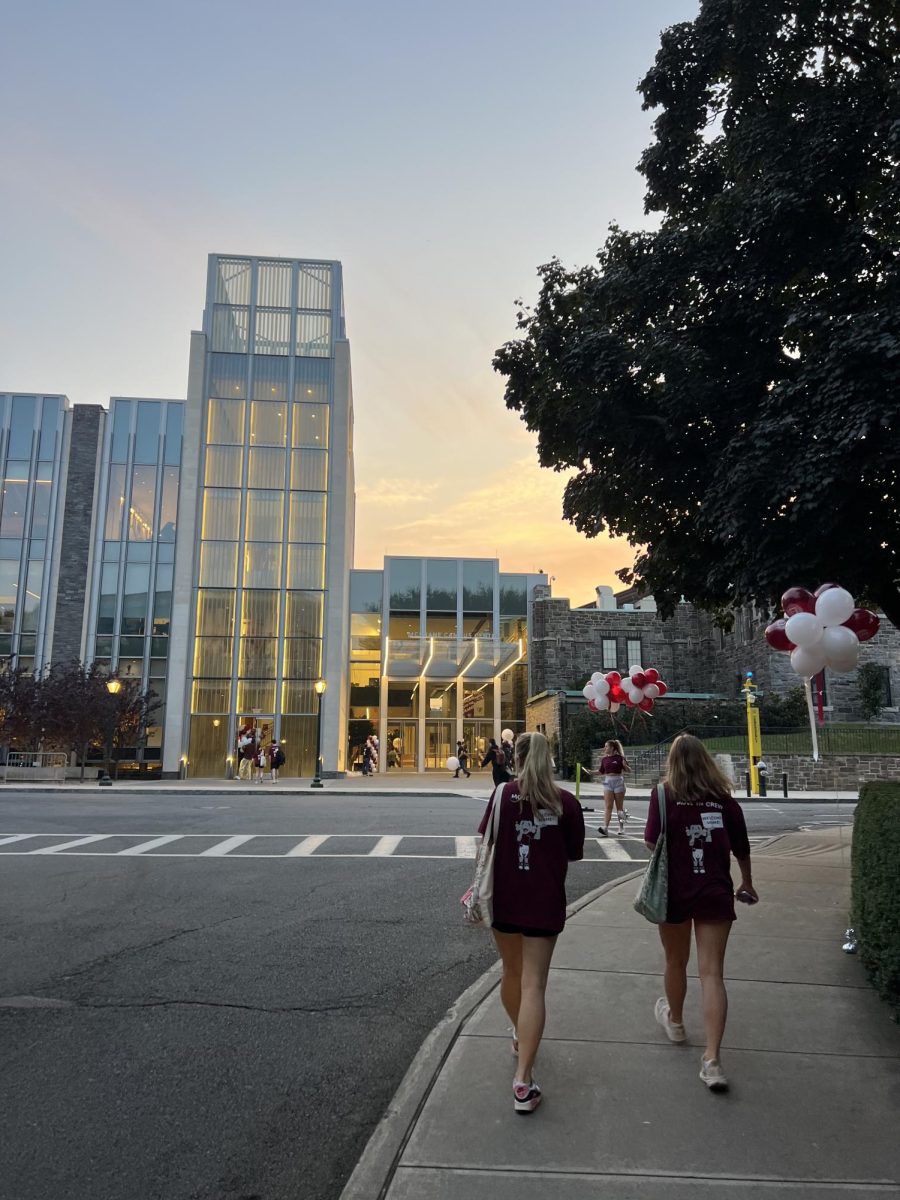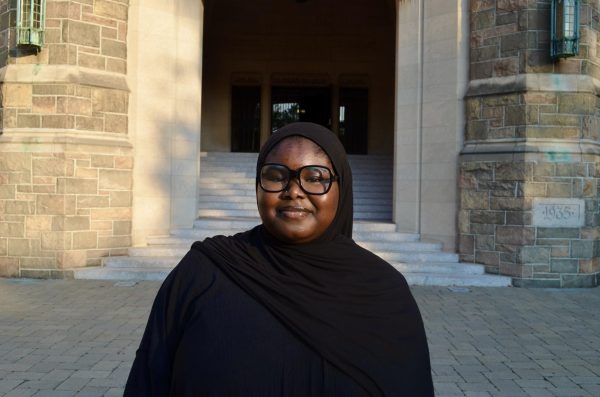Rev. Joseph M. McShane, S.J., president emeritus, returned to Fordham University’s Rose Hill campus to speak for the 20th annual Economos Orthodoxy in America lecture series on Oct. 1.
McShane’s speech, titled “Building an Alliance of Grace: The Work of Ecumenism in an Age of Anxiety,” explored the history and contemporary applications of the relationship between the Roman Catholic and Eastern Orthodox churches. This speech was especially significant for the Fordham community, home to the Orthodox Christian Studies Center.
The center described its mission on the back of the program handed to attendants of Tuesday’s lecture, stating, “It seeks to promote understanding of Orthodox Christianity in Western culture… and to promote ecumenical dialogue and relations, especially with Roman Catholicism.”
Ecumenism is a movement within Christianity that seeks unity across different denominations. In his lecture, McShane highlighted the history of division and the attempts at unity. He spoke about the Great Schism of 1054 that resulted in the formation of an Eastern and a Western church and the 1964 meeting of Patriarch Athenagoras and Pope Paul IV in Jerusalem to commit themselves to reconciling their differences.
In introducing his speech, McShane stated he would provide “reflections on where we’ve been, where we are, and where we must go.”
When asked what he hopes attendees took away from his lecture, McShane said, “I hope people first learn a bit about the history and then take it upon themselves and make it their responsibility to join the Patriarch and the Pope in this alliance of grace.”
McShane emphasized that working together helps us discover that we have more similarities than differences. He highlighted that we should not be satisfied with only a Christian “alliance of grace,” but we must also pursue interfaith alliances of coexistence, understanding and interfaith dialogue. McShane highlighted Pope Francis’ trips to Singapore and Indonesia to pray and speak with Muslim leaders as an example of this practice of building interreligious bridges.
As his title emphasizes, we are living in an “Age of Anxiety.” In a September 2023 report, the World Health Organization stated, “Anxiety disorders are the world’s most common mental disorders, affecting 301 million people in 2019.”
McShane addressed these anxieties head-on and insisted that we can tackle social justice issues when we are unified, leaving attendees feeling energized and impressed.
Aidan Nanquil, FCRH ’27, said, “I’ve recognized that ecumenism has always been an important part of the Church, especially after Vatican II in the ’60s, but seeing the contemporary process of both the Patriarch and the Pope in having mutual respect for each other and looking for ways, even small ways, to respect and honor the faiths of each other has been really important to me because it shows that there can be a sense of ecumenicity and a sense of connection even if we’re divided along church lines.”
Anas Islam, FCRH ’28, who also attended the lecture, shared, “[The Church] has a lot of history — a history of unity, a history of division, and it’s times like these where we’re coming together and gaining understanding and creating solutions for the future and ensuring that it prospers.”
Nanquil and Islam are involved in the fellowship program Fordham’s Orthodox Christian Studies Center offers.
“I’ve been a devout Catholic my whole life, but I’ve always had a profound reverence for Orthodox Christianity because I see it as a totally different but important type of worship,” Nanquil said about how his involvement with the center supported the deepening of his faith. “Being able to learn about this other form of Christianity that has the same type of reverence and similar structure in terms of ministry and being able to worship and learn about God in a different way means a lot to me.”
When asked about why it’s important to have these conversations today, McShane responded, “Well, I think right now it’s important because the world needs modeling, modeling by adults who are able to talk through differences. I think it’s important for lectures like this to be held right now to say there is hope because there are people with great integrity and vision who are committed to this.”
Nanquil said he left the lecture feeling hopeful, stating, “It makes me hopeful for the future, and it shows me that I have a personal part in responding to this.”








































































































































































































